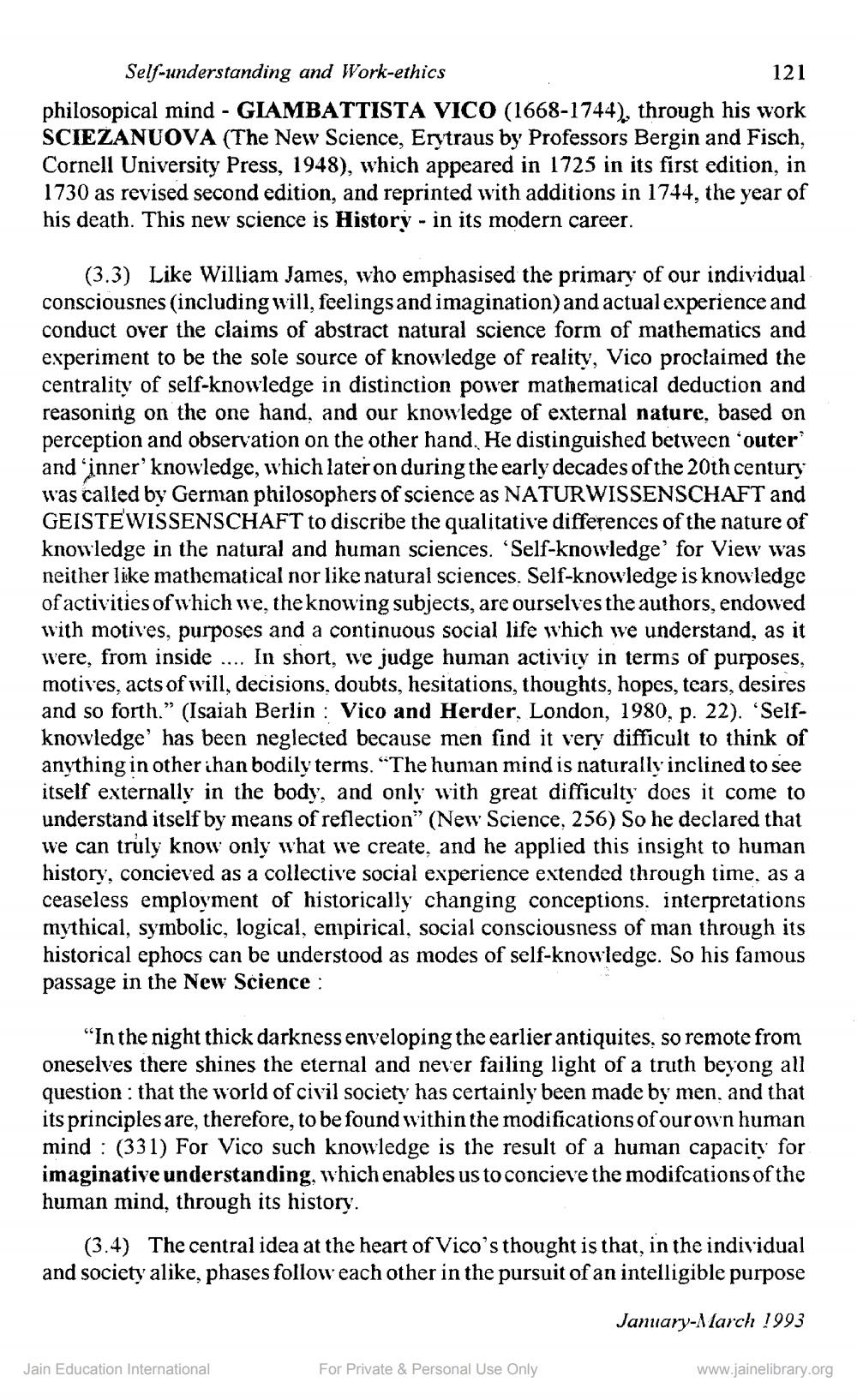________________
Self-understanding and Work-ethics
121
philosopical mind - GIAMBATTISTA VICO (1668-1744), through his work SCIEŽANUOVA (The New Science, Erytraus by Professors Bergin and Fisch, Cornell University Press, 1948), which appeared in 1725 in its first edition, in 1730 as revised second edition, and reprinted with additions in 1744, the year of his death. This new science is History - in its modern career.
(3.3) Like William James, who emphasised the primary of our individual consciousnes (including will, feelings and imagination) and actual experience and conduct over the claims of abstract natural science form of mathematics and experiment to be the sole source of knowledge of reality, Vico proclaimed the centrality of self-knowledge in distinction power mathematical deduction and reasoning on the one hand, and our knowledge of external nature, based on perception and observation on the other hand. He distinguished between 'outer and "inner'knowledge, which later on during the early decades of the 20th century was called by German philosophers of science as NATURWISSENSCHAFT and GEISTEWISSENSCHAFT to discribe the qualitative differences of the nature of knowledge in the natural and human sciences. 'Self-knowledge' for View was neither like mathematical nor like natural sciences. Self-knowledge is knowledge
activities of which we, the knowing subjects, are ourselves the authors, endowed with motives, purposes and a continuous social life which we understand, as it were, from inside .... In short, we judge human activity in terms of purposes, motives, acts of will, decisions, doubts, hesitations, thoughts, hopes, tears, desires and so forth.” (Isaiah Berlin : Vico and Herder, London, 1980, p. 22). 'Selfknowledge' has been neglected because men find it very difficult to think of anything in other ihan bodily terms. “The human mind is naturally inclined to see itself externally in the body, and only with great difficulty does it come to understand itself by means of reflection” (New Science, 256) So he declared that we can truly know only what we create, and he applied this insight to human history, concieved as a collective social experience extended through time, as a ceaseless employment of historically changing conceptions. interpretations mythical, symbolic, logical, empirical, social consciousness of man through its historical ephocs can be understood as modes of self-knowledge. So his famous passage in the New Science :
“In the night thick darkness enveloping the earlier antiquites, so remote from oneselves there shines the eternal and never failing light of a truth beyong all question : that the world of civil society has certainly been made by men, and that its principles are, therefore, to be found within the modifications of our own human mind : (331) For Vico such knowledge is the result of a human capacity for imaginative understanding, which enables us to concieve the modifcations of the human mind, through its history.
(3.4) The central idea at the heart of Vico's thought is that, in the individual and society alike, phases follow each other in the pursuit of an intelligible purpose
January-March 1993
Jain Education International
For Private & Personal Use Only
www.jainelibrary.org




